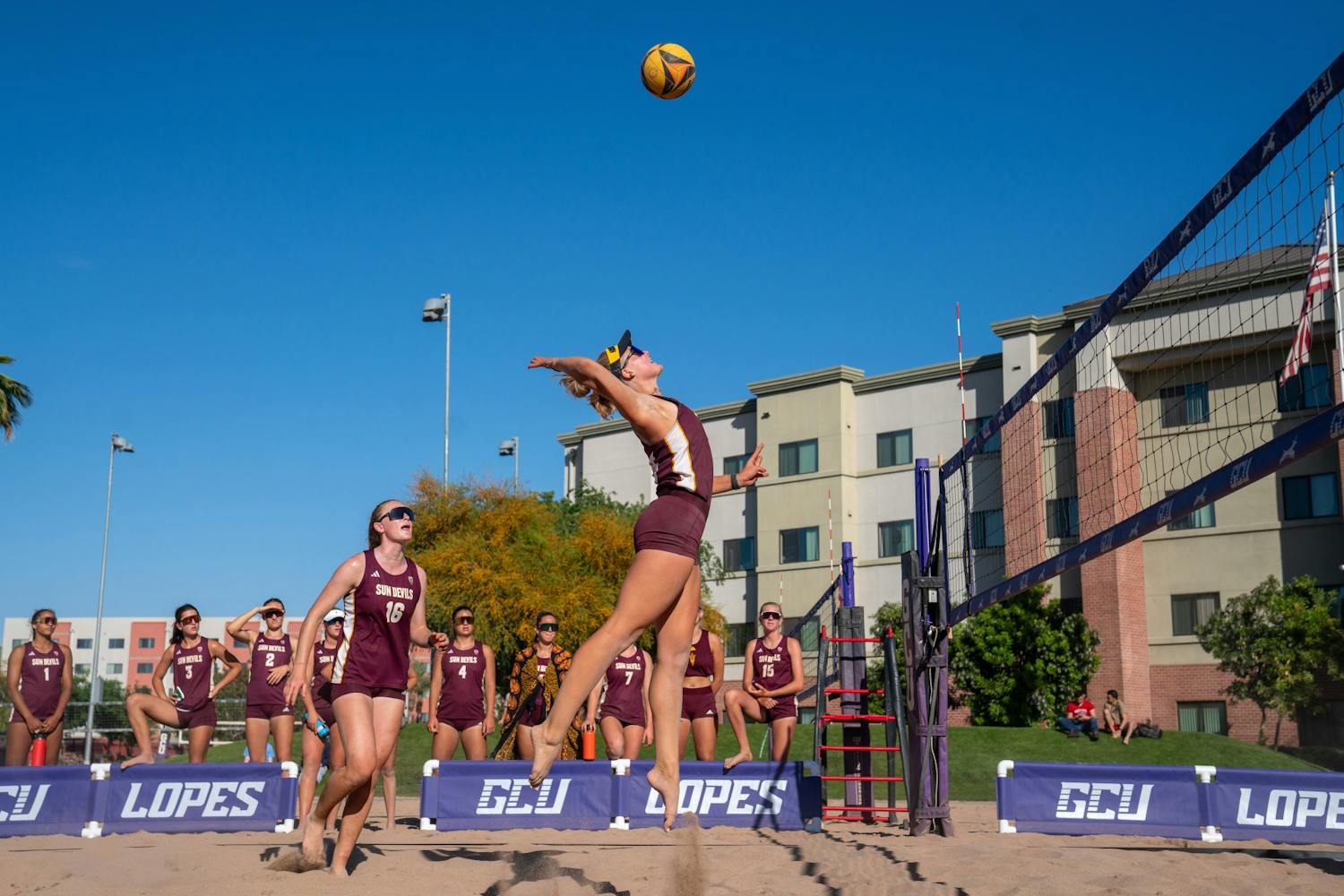Competition from commercial universities in the Valley is helping absorb the overflow of students in the Arizona university system, and at the same time, is convincing ASU to open more flexible distance learning courses.
The University of Phoenix, Western International University and Ottawa University are typical of the 150 private colleges competing in the state educational marketplace.
“August enrollment was about 8,000 students. In the U.S., including Hawaii and Puerto Rico, total enrollments are about 95,000,” said Phillip Lundberg, vice president of the University of Phoenix, Phoenix campus.
According to the ASU Office of Institutional Analysis, ASU Main had a record undergraduate admission this fall; the total number of students on campus is 45,693. Total enrollment at NAU is now 19,728 and UA set a record this semester with a total enrollment of 35,747.
Tony Fleischer, assistant to the Arizona Post-Secondary Education commission, said, as a whole, Arizona colleges are overfilled.
“In our society and economy, healthy competition is good; on the other hand, universities, both private and commercial, need to cooperate. I think it’s a very positive thing for our state,” said Allen.
Although enrollment at ASU has grown with population expansion in the Valley, ASU wants to keep its competitive edge in the market.
Bill Verdini, associate dean of the College of Extended Education, said, “I believe the private schools have attracted students that we haven’t paid much attention to, in the past.”
Verdini said previously, a student had to come to campus two to three days a week for 16 weeks, making it hard for students with families and full-time jobs to attend.
But private colleges are a high-priced alternative to a state-funded college like ASU. The University of Phoenix charges $270 per credit hour for in-state tuition versus ASU’s $119 per credit hour.
Bob Barker, assistant vice president at the University of Phoenix, said their typical student is 35 years old and has at least one year of college credits.
“Locally, we anticipate an enrollment increase of 2,000 students within two years given our current growth rate,” Barker said. “There are a lot of Sun Devils walking through our halls.”
Keeping pace with the commercial market, ASU is now providing 48 off-campus degree programs, including two master’s degree programs in the College of Engineering and a bachelor’s program in interdisciplinary studies that are Web-based.
“What we define our mission as is providing access to quality education for which ASU is already recognized,” Verdini said. “So, we’re not changing programs; we’re providing convenience to quality programs.”
Reach Victor Allen at victordallen@cs.com.



